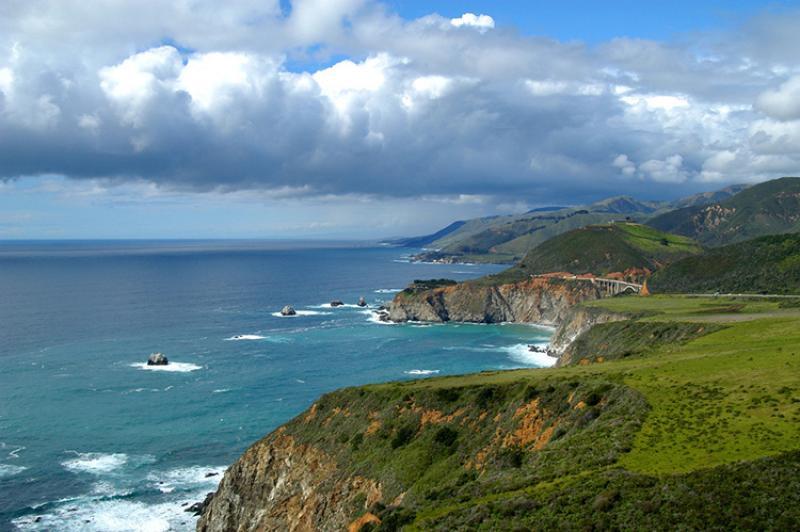
Unsettled Pacific Ocean offers surprises as climate change alters ecosystem
by NOAA Fisheries 13 Mar 2023 01:27 UTC

New Ecosystem Status Report cites shakeup of familiar ecological relationships © NOAA Fisheries
Ecological relationships across the Pacific Coast that once guided annual expectations such as salmon returns are evolving as climate change disrupts long-standing connections.
NOAA Fisheries researchers report these findings in their latest Ecosystem Status Report for the California Current Ecosystem.
Robust climate indices like the Pacific Decadal Oscillation and Oceanic Niño Index predicted cold and productive ocean conditions for salmon and other species throughout 2022. However, weakened upwelling and local intrusions of warmer water resulted in poor productivity and warmer-than-normal coastal conditions in the latter half of the year.
For example, the warm waters fueled an outbreak of toxic algae that poisoned California sea lions near Santa Barbara in August. It kept some beaches closed to clamming as far north as Washington. The disconnect between the oceanographic predictions and observed conditions have raised further concerns about the region's preparedness in the face of climate change.
"We have seen profound changes under way in the last decade that have altered these relationships unlike anything we have seen in the historical record," said Nate Mantua, landscape and seascape ecology leader at the Southwest Fisheries Science Center in Santa Cruz.
Changes in ecological relationships due to climate change
The new findings come from a research partnership between NOAA Fisheries' Southwest and Northwest Fisheries Science Centers called an Integrated Ecosystem Assessment. It tracks ecological and other indicators of the California Current Ecosystem off Washington, Oregon, and California. The science centers issue an annual ecosystem status report describing indicators of physical, biological, and socioeconomic indicators. When all these results are considered together, scientists can track connectivity and changes within the entire ecosystem, including humans and coastal communities. They can then use science to inform management in a movement towards Ecosystem Based Fishery Management.
Researchers saw shifts in ecological relationships, such as the weakened connection between the Pacific Decadal Oscillation index in predicting annual upwelling strength. These changes may reflect a "decoupling" of broad-scale processes from more local processes, scientists said. Decoupling occurs when the relationship between two environmental conditions is weakened such that the status of one condition is no longer as reliable as it once was in predicting the condition of the other. Climate change has caused unequal shifts in environmental conditions, causing some relationships to unravel.
One effect of the unsettled ocean is that some models scientists use to estimate fishing impacts may no longer work well in this new ocean environment. For example, the commercial salmon catch in California overshot expectations by about 2.5 times because the fleet caught more salmon per day than first estimated. That left fewer salmon returning to rivers to spawn. And those salmon that returned to their home rivers in summer and fall 2022 were greeted by extremely warm—potentially lethal—stream temperatures.
While the unraveling of familiarly strong connections is not ideal for forecasters, it can produce surprisingly positive outcomes. For example, anchovy continued to boom in the California Current Ecosystem in 2022, decoupling past patterns that linked anchovy numbers to cold ocean conditions rather than warm. These abundant schools of forage fish provided ample food for salmon, California sea lions, whales, birds, and other predators. However, with a rise in anchovy providing ample prey for salmon, we have seen the adverse effects of a uniform diet because anchovies carry an enzyme that breaks down vitamin B1 (thiamine) in anchovy predators and puts their offspring at risk.
Tracking ecological and social indicators
The Integrated Ecosystem Assessment covers ecological and social developments on the West Coast. It recognizes the value of commercial fisheries and marine mammals that also generate economic activity through recreation and tourism. In 2022, fishery landings were close to the long-term average as they increased following the pandemic years. Crab and squid landings especially increased, as commercial fishing revenue rose 10 percent from 2021 to 2022 in an increase following the pandemic. Biological surveys also found very high numbers of sablefish in the 2021 year class, which could be good news for the future of the West Coast groundfish fleet.
The report includes a section examining the overlap between commercial fisheries and likely development areas for offshore wind energy. The team also continued efforts to identify ecological indicators of climate change that could help track impacts on the ecosystem.
"We expected better conditions, but at least the system showed resilience in the face of heatwaves and other negative conditions via periods of decent productivity and an ample food web base in some locations," said Chris Harvey, research scientist at the Northwest Fisheries Science Center, who helped develop the new report. "At the end of the day, we were left with a system that still performed on average."